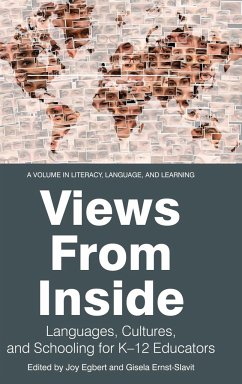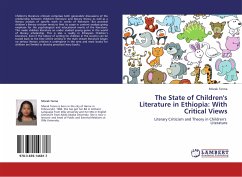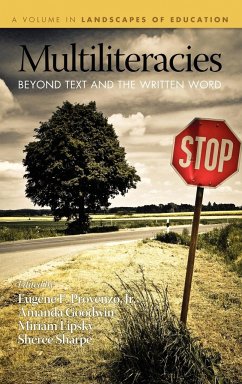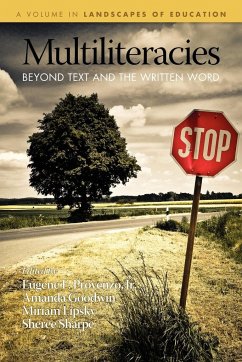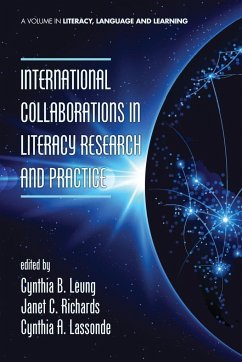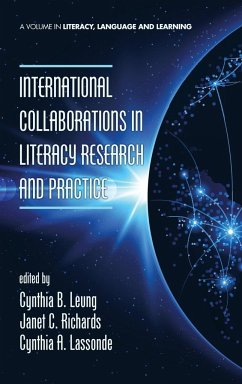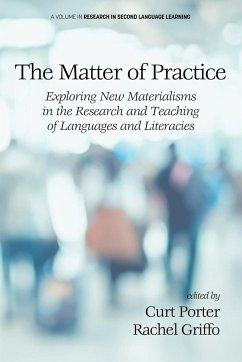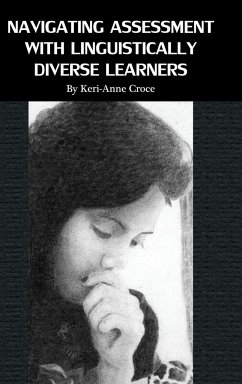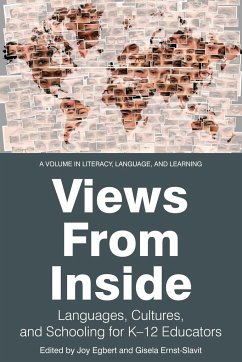
Views from Inside
Languages, Cultures, and Schooling for K-12 Educators
Herausgeber: Egbert, Joy; Ernst-Slavit, Gisela
Versandkostenfrei!
Versandfertig in 1-2 Wochen
76,99 €
inkl. MwSt.
Weitere Ausgaben:

PAYBACK Punkte
38 °P sammeln!
The goal of this text is to help teachers in diverse classrooms understand the importance of students' culture, languages, and schooling experiences to curriculum, assessment, and student achievement. Readers will learn about aspects of specific cultures and languages that are important to their understanding of their students, and they will discover that cultures that are often considered similar may not be so (and why they aren't). Finally, the text focuses on how teachers can integrate languages and cultures into classrooms and how to account for students' backgrounds and funds of knowledge...
The goal of this text is to help teachers in diverse classrooms understand the importance of students' culture, languages, and schooling experiences to curriculum, assessment, and student achievement. Readers will learn about aspects of specific cultures and languages that are important to their understanding of their students, and they will discover that cultures that are often considered similar may not be so (and why they aren't). Finally, the text focuses on how teachers can integrate languages and cultures into classrooms and how to account for students' backgrounds and funds of knowledge when devising tasks. The text starts with an introduction to language and culture that presents a research-based explanation of why these concepts are important for teachers to understand (Chapter 1). Then, the middle 28 chapters each address one country/culture. Each chapter starts with a school scenario in the US. Part 2 of each chapter includes evidence-based demographic and background data on the country, including historical events that may have an impact on our students and their families. Part 3 includes a look at education, schooling, and culture, including famous people, contributions to the world, personal characteristics, important religious information, focal customs, and other aspects that are important to cultural insiders. Part 4 is about language and literacy traditions and how they relate to the culture, a number of words that teachers can learn (e.g., yes, no, thank you, please, hello), how the language is different from and similar to English, and what those differences and similarities might mean for English language learners from that culture. Part 5 comprises advice, resources, and ideas for teachers (for example, if it is an oral culture, the teacher might consider working with students on oral storytelling before transitioning to written stories, or incorporate both using technology). Each chapter also contains recommended readings and resources and short exercises that extend the chapter information. The final chapter presents parting notes for teachers and additional suggestions for addressing diversity.





